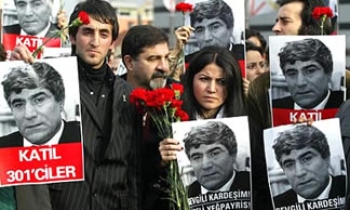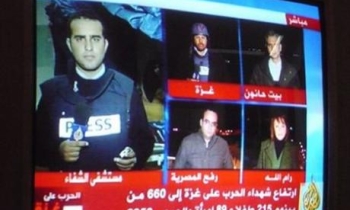Until earlier this month most of us had never heard of the Danish newspaper Jyllands-Posten. Most were blissfully unaware, too, that the 12 cartoons published in that newspaper on September 30 last year would eventually result in a wave of Muslim protest that would lead to embassies being set on fire, posters being paraded around London with messages inciting terror and several deaths across the Middle East and south Asia. However, this vile and disproportionate reaction could change profoundly the way that British people coexist with the 1.6m Muslim minority in their midst.
It is a hoary old cliché to say that British society is tolerant and forgiving, but by and large it happens to be true. Race relations in Britain have not been perfect but they have until recently been getting better. After the London bombings of July 7 last year, perpetrated by four home-grown Islamic terrorists, there was no significant backlash against Muslims. A stoical hardiness, partially reinforced by years of IRA bombs, was the predominant reaction.
Now, perhaps, we are paying the price of that unthinking tolerance. Amir Tahiri, the eminent Iranian writer, argues in this newspaper today that Britain has become a haven for Islamic political parties and movements that would be banned in much of the Arab world. Only in Britain, and a few other tolerant western countries, have these extremist factions been given the space to spout anti-western hatred.
We should not confuse this with religious tolerance. Mr Tahiri says that Islam in Britain is "a political movement masquerading as a religion". Mosques are often no more than political clubs. As we saw with Finsbury Park and Abu Hamza, belatedly jailed last week for inciting violence and racial hatred, the consequences of permitting these messages of hate can be deadly.
The public appears to have had enough. A YouGov poll commissioned for this newspaper shows widespread anger over the inflammatory language of those protesting at the cartoons and a distinct hardening of attitudes. No fewer than 86% of people think the cartoon protests were "a gross overreaction". The offensive placards carried by demonstrators in London, celebrating the July 7 bombings and urging violence against those who insult Islam, rightly outraged many.
Three-quarters believe those who carried them should have been arrested. As it is there was only one arrest – the crack dealer who thought it was a smart idea to dress up as a suicide bomber – and only then because he had broken the terms of his early release from prison.
The public is deeply disillusioned with the way the Establishment appears to appease Islamic extremism. Two-thirds think senior policemen such as Sir Ian Blair, the Metropolitan commissioner, are too "politically correct" to deal toughly with extremists. Four-fifths think this also applies to Britain’s politicians. They believe politicians were pusillanimous and slow to act and the courts have been too lenient. More than two-thirds believe Hamza should have received a much longer jail sentence than seven years.
This disenchantment has been translated into a profound gloominess about the clash of cultures and civilisations. Most expect relations between British Muslims and the rest of the population to get worse and for attacks on Muslims to increase. Nearly nine out of 10 think there will be more Islamic inspired terror attacks in the UK. Half feel less tolerant to people of other religions. It makes gloomy reading, echoing the hatreds that have emerged even in once tolerant Holland.
Sadly, the pessimism is justified. As our Insight investigation reveals, the preachers of hate are still at work in the areas from which the London bombers were recruited. The politicians and police must take note. Unless they act more swiftly to convict or deport these fanatics, the country faces an alarming future.









